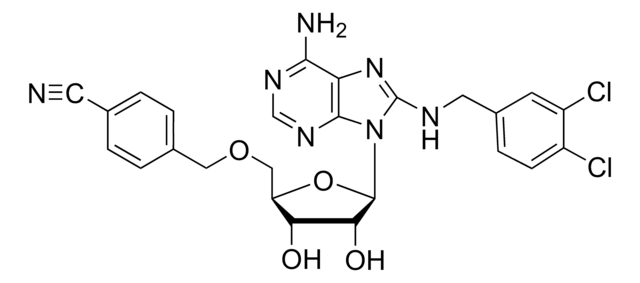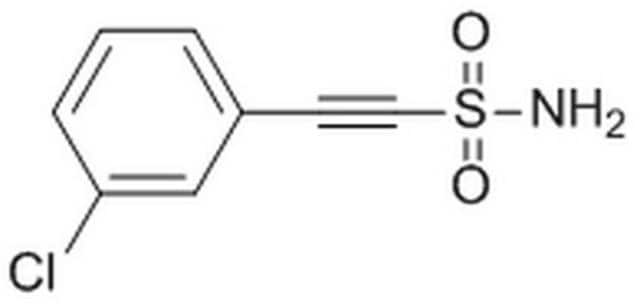SML0943
YM-1
Synonym(s):
2-[[3-Ethyl-5-(3-methyl-2(3H)-benzothiazolylidene)-4-oxo-2-thiazolidinylidene]methyl]-1-methyl-pyridinium chloride
About This Item
Recommended Products
Assay
≥98% (HPLC)
Quality Level
form
powder
color
orange to dark red
solubility
H2O: 2 mg/mL, clear (warmed)
storage temp.
2-8°C
Application
Biochem/physiol Actions
YM-1 also has anticancer activity, which could be due to enhanced ubiquitination and clearance of Akt, a major survival kinase. In studies with multiple cancer lines, YM-1 was found to selectively target cancer cells over normal cells and to overcome tamoxifen resistance in a tamoxifen-resistant MCF7 cell model. YM-1 had greater efficacy and cytosolic localization than the closely related MKT-077 (M5449).
Storage Class Code
11 - Combustible Solids
WGK
WGK 3
Flash Point(F)
Not applicable
Flash Point(C)
Not applicable
Choose from one of the most recent versions:
Certificates of Analysis (COA)
Don't see the Right Version?
If you require a particular version, you can look up a specific certificate by the Lot or Batch number.
Already Own This Product?
Find documentation for the products that you have recently purchased in the Document Library.
Customers Also Viewed
Articles
DISCOVER Bioactive Small Molecules for Nitric Oxide & Cell Stress Research
Our team of scientists has experience in all areas of research including Life Science, Material Science, Chemical Synthesis, Chromatography, Analytical and many others.
Contact Technical Service








